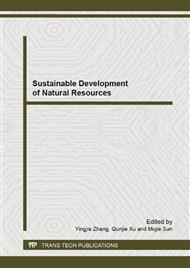p.1243
p.1249
p.1254
p.1260
p.1267
p.1272
p.1280
p.1285
p.1292
Transition of Land Finance and Sustainable Development: A Theoretical Analysis
Abstract:
Land finance pushed up house prices, fueled the real estate speculation, caused the local government financial risk, and buried the hidden danger in macro economic stability. This situation must be reformed. The research method is literature analysis. The result shows: in order to lessen the negative effects of land finance, we should deepen and perfect the reform of fiscal and taxation systems, divide financial power and responsibility reasonably, look for alternative sources of revenue actively, and reform tax system. At the same time, it must be done to change land assets management mode, break the local government’s monopoly of the land, and thus eliminate the local government impulse of selling land to raise funds.
Info:
Periodical:
Pages:
1267-1271
Citation:
Online since:
December 2012
Authors:
Keywords:
Price:
Сopyright:
© 2013 Trans Tech Publications Ltd. All Rights Reserved
Share:
Citation:


